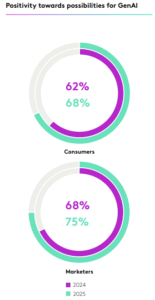As artificial intelligence continues its rapid evolution, a new paradigm is emerging, one where autonomous, goal-driven agents operate with increasing independence, adaptability and contextual awareness. These agentic AI systems are not just executing tasks; they are reasoning, planning and orchestrating actions across complex environments. With this shift comes a new challenge: how do we version agentic AI agents?
In my previous article, A practical guide to agentic AI deployment, I talked about moving to a software development lifecycle consisting of experiment and build, evaluate and test, adapt, transition to the deployment environment, continue to test, version and repeat. Add to that that, on average, the AI model lifecycle is less than 18 months, so it becomes imperative to create an agent versioning strategy.
Traditional software versioning strategies, anchored in static codebases and predictable release cycles, fall short when applied to agentic systems. These agents may learn from experience, update their internal models or even reconfigure their toolchains in response to dynamic goals. Their behavior is shaped not only by code but by memory, context and interaction history. As a result, versioning an agent is no longer just about tracking code changes. It’s about capturing the evolution of behavior, intent and capability. An AI implementation strategy is no longer optional but essential for organizations, and the most critical component of this strategy is a comprehensive approach to agent versioning and rollback capabilities. These systems act as safety nets, allowing organizations to quickly revert to stable versions when new deployments cause unforeseen issues.






